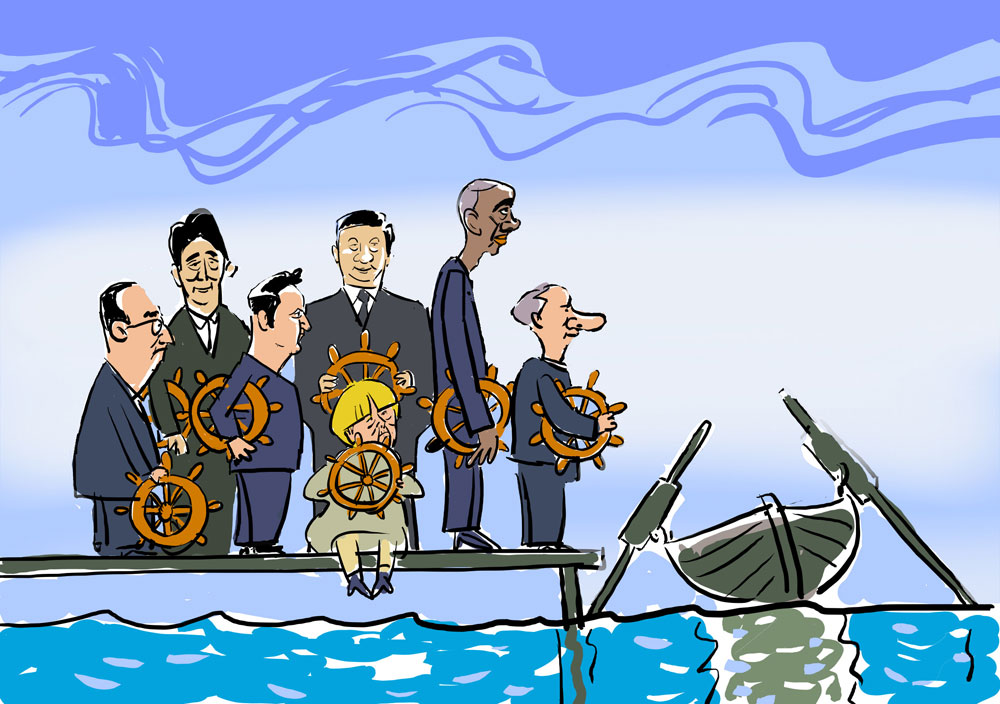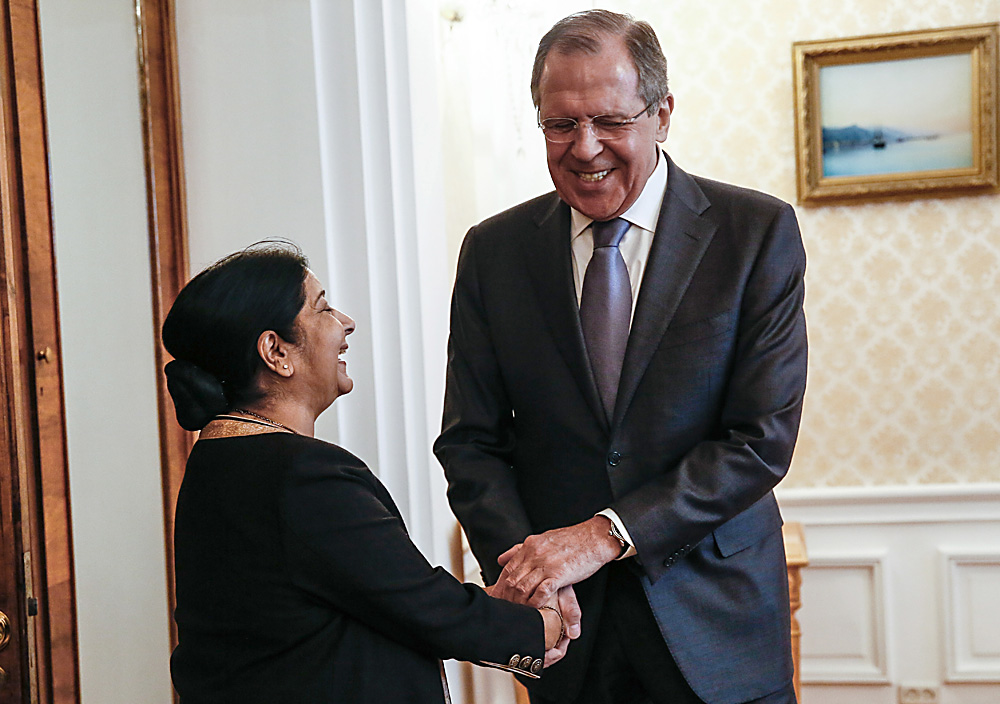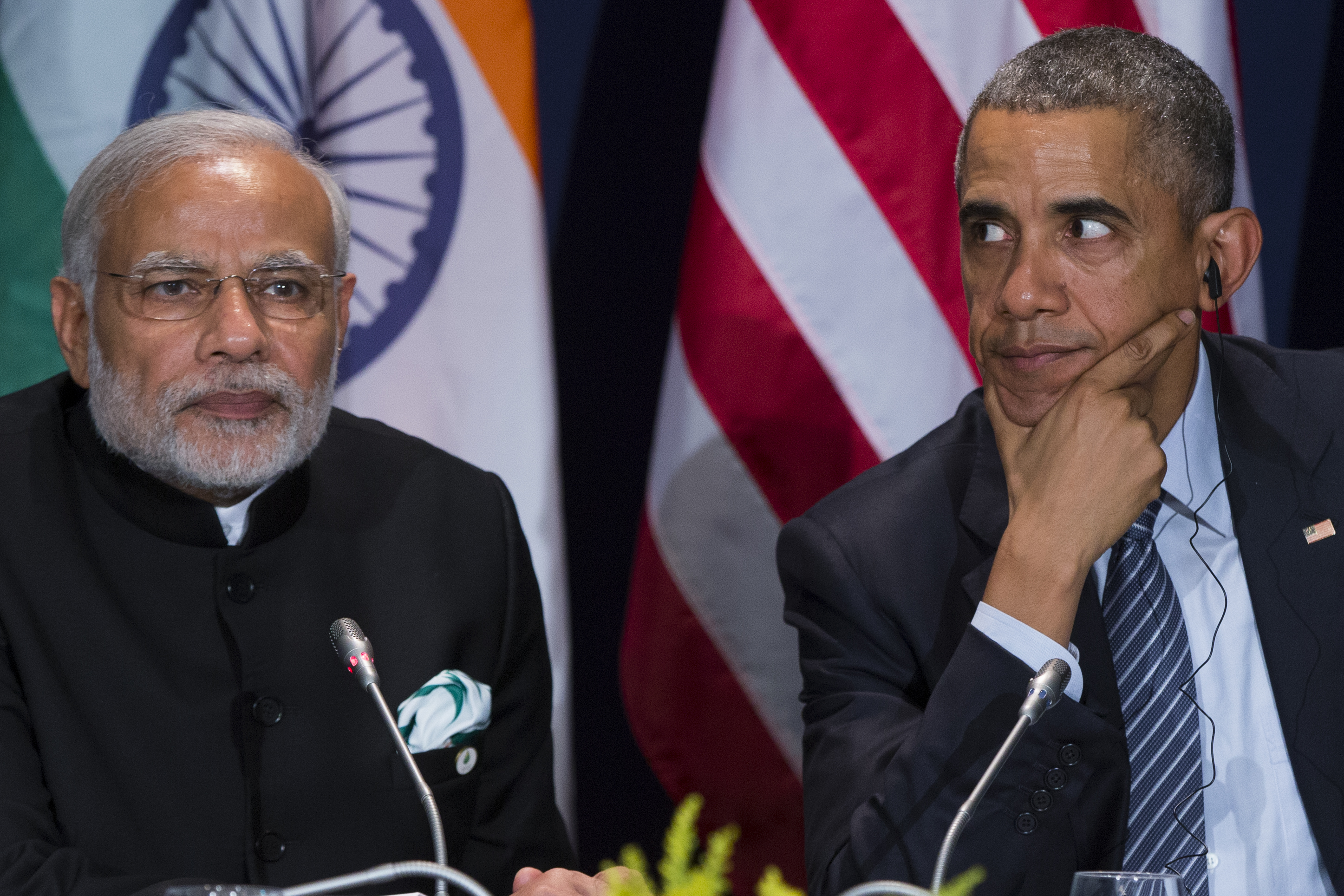Anxieties of the new world order

Drawing by Iorsh
IorshWhere is the global world order headed in the 21st century? People are asking this question today with increasing anxiety. And I'm one of them.
With my friend, the late Hans-Dietrich Genscher, we often asked the following question: what went wrong? Our generation- a generation of politicians whose joint efforts contributed to ending the Cold War- carried out its mission. But then why is today's world unquiet, unjust and militarized?
It seemed that the end of the global confrontation and the unprecedented possibilities of new technologies, primarily informational, should have given the world a new breath, making each individual's life better. But reality has turned out different.
This does not have an easy explanation. I often used to say that politicians were not up to par. Those who declared the victory of the West in the Cold War, who refused to build a new, equitable security system, bear a large portion of the responsibility for the current state of the world. Triumphalism is a bad advisor in world affairs.
But that is not the only problem. The new globalised world is still not understood and interpreted. It needs new rules of conduct, a new morality. But the world leaders, apparently, cannot grasp this.
I think herein lies the main reason for today's "global troubles."
Who won and who lost in the globalised world?
People are worried about the tensions in international affairs, but no less are they worried about their own situation, their own future. This is all inter-related.
Even in the most developed countries, the majority (the middle class is the foundation of every successfully developing society) expresses its dissatisfaction with its life. Voters are more frequently supporting populist politicians who propose apparently simple but in reality dangerous solutions.
However, irresponsible financial structures have well adapted to and benefitted from globalization, all blowing "soap bubbles" and making billions literally from the air. These billions find their way into a narrow circle of people who hide them from taxation. We have just seen new examples of this. But this is just the tip of the iceberg.
All this has happened without mention of the fact that organized crime structures, drug dealers, arms dealers, groups profiting from massive migrant flows, cybercriminals and most importantly, terrorists, all feel very comfortable in the globalised world.
Political crisis, leadership crisis
Global politics has still not found an effective solution for any one of these problems. Meanwhile, a new round of the arms race has begun, the ecological crisis is getting worse and the gap between rich and poor countries is getting larger, as well as that between the rich and the poor within individual countries. These are the problems that must be on the top of the world's agenda. But they are not being solved. Dead ends are everywhere.
And yet it seemed that to overcome them there are possibilities, as well as mechanisms - those that have existed for a long time, such as the UN, and new ones, such as the G20, which was created to meet the new challenges. But hardly anyone can say that they have been successful. They are always late, they are always behind.
We are faced with a leadership crisis, both international and national. Politicians are just occupied with "putting out fires," solving the day's problems, crises and conflicts.
No one is arguing. They must be solved. And in the last weeks there have been some positive breakthroughs.
There is dialogue on Syria. For now, however, the major participants in these talks are external countries, primarily the US and Russia. But this has already helped to ease the tensions between Russia and the West.
If this trend is developed, it can then be applied to other spheres of relations. But this will be a lengthy and complicated process. Trust has been greatly damaged.
On the other hand, there have been no breakthroughs to resolving the Ukrainian crisis. The current regulatory mechanisms are working poorly. There is an impression that the mechanisms are becoming routine. We should not abandon the mechanisms (the Minsk Agreements, the Normandy Four). But evidently they need to be completed and stimulated to work, possibly through discussions in the UN Security Council or other mechanisms, with the participation of both Russia and the US.
We cannot leave the Ukrainian crisis with an abscess, creating a fever throughout Europe and the world. Europe may not withstand another frozen conflict. I again ask presidents (Barack) Obama and (Vladimir) Putin (I did so for the first time in 2014) to meet and discuss this continuing crisis.
Looking farther
But even if we are able to overcome the acute current crisis, it will be an important but only first step to solving a much more complex problem: learning how to live in a globalised world.
Without a global context it is impossible to understand the reasons and consequences of the current conflicts and develop a renewed agenda and resources for solving problems that will inevitably arise in the world.
In the world policy agenda the most important thing is to correctly understand the priorities.
The Russell-Einstein Manifesto, Olof Palme's ideas on contemporary security, John Kennedy's speech on "the world for everyone," the USSR and the US Geneva Declarations in 1985 (confirmed by Reykjavik and the agreements to stop the nuclear arms race) - these were all "proposals" to create such an agenda, on top of which would be placed humanity's main problems.
As of today, these main problems are:
The continuous problem of weapons of mass destruction, arms races, the militarization of world politics;
The problem of poverty and underdevelopment of an enormous part of humanity;
The ecological challenge, climate change;
Terrorism
Other acute problems are mass migration, xenophobia and religious intolerance, the problem co-existence of various civilizations.
The common denominator of all these problems: not one of them can be solved militarily.
To say that it is necessary to unite efforts would seem like an axiom. But for now disunity and the inability to act together prevail.
Governments and their leaders bear the main responsibility for such a state of affairs. The global community now has other participants in world processes: civil society organizations, business, the scientific community, religious associations. But the role and responsibility of governments, their leaders and inter-governmental organizations must remain decisive.
Politics and morality: The rules of conduct
Another imperative for today's globalised world is the necessity to unite politics and morality.
This is a big and difficult problem. It cannot be solved in one fell swoop. But if we do not face this problem and work assiduously to solving it, the world will be destined to experience new conflicts and unsolvable contradictions.
"Double standards" are especially dangerous in the global world. All possibilities for governments to support (out of their interests) terrorist and extremist groups must be excluded, just like support for any movement promoting "an armed fight" to overthrow legal governments.
Relations between governments in the global world must be regulated not only by international legal norms, but also by certain rules of conduct that are based on principles of human morality.
These "rules of conduct" must include restraint, consideration of interests of all sides, consultation and mediation when the situation intensifies and there is a threat of a crisis. I am convinced that it could have been possible to avoid the Ukrainian and Syrian crises if the direct participants and especially the external parties had been guided by such rules of conduct.
I believe that rules of conduct, a sort of ethical code, are also needed for the mass media. They are also partly to blame. Often they excite passions and sully the informational atmosphere. Instead of helping to prevent and stop conflicts, they practically participate in fuelling them.
The most important thing that I want to say is that it is necessary to place the issues of the renewed agenda, the combination of morality and politics, and the rules of conduct in a global world, at the centre of the governments' and the world civil society's attention.
Russia's role
I am convinced that Russia's role in overcoming the world political crisis can and must be important and positive. It is time for the West to renounce its attempts to isolate Russia. This has never produced results. "Personal sanctions" will definitely not yield any fruit either. They should be lifted first. Otherwise there will be no dialogue, there will be no chance to restore trust.
No one should expect that, after encountering economic difficulties, Russia will accept its secondary role in the world. If this happened no one would benefit. What's more - everyone would only lose from a new Cold War.
A couple of days ago, during the "direct line" on television, Vladimir Putin stated his intention to normalize relations with the West. But will our partners be able to readjust to a more constructive approach? This is still unclear, but I call on them to do so.
Currently we are at a very delicate juncture. We must throw away our emotions and propagandist excess. Serious claims can be raised against today's generation of important leaders. But this generation still has the opportunity to be mentioned with dignity in history books. And it would be a big mistake not to take advantage of this opportunity.
All rights reserved by Rossiyskaya Gazeta.
Subscribe
to our newsletter!
Get the week's best stories straight to your inbox

_165.jpg)

